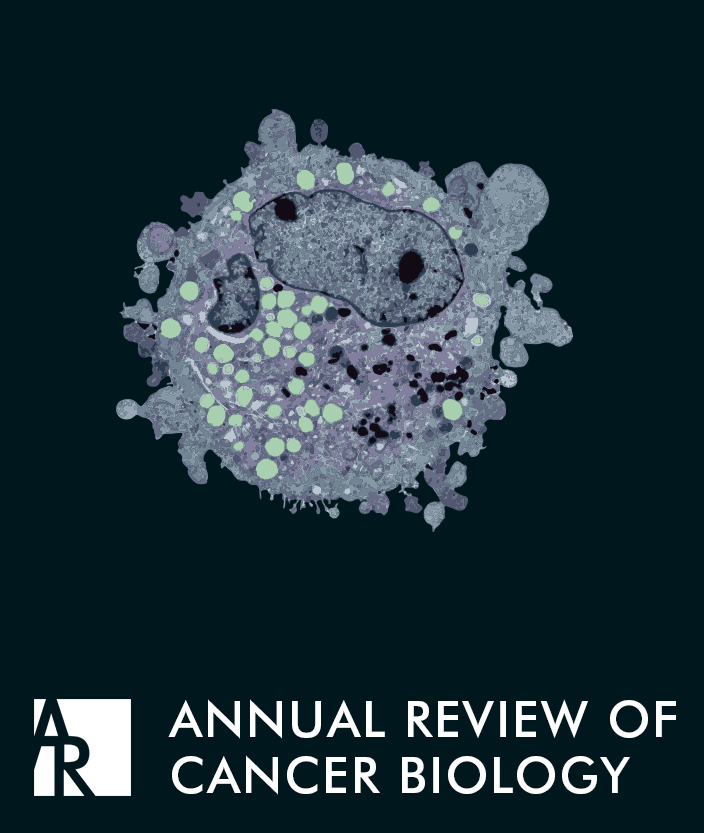翻译控制在肿瘤发生中的作用及其治疗意义
IF 4.7
2区 医学
Q1 ONCOLOGY
Annual Review of Cancer Biology-Series
Pub Date : 2020-03-09
DOI:10.1146/annurev-cancerbio-030419-033420
引用次数: 34
摘要
作为大多数致癌信号下游的收敛机制,mRNA翻译的控制已成为癌症发展特定步骤中建立和调节基因表达的关键驱动因素。翻译控制是细胞中能量最昂贵的分子过程,需要在适应有限的细胞资源(如细胞应激)时进行调节。因此,它是癌症细胞的致命弱点,特别是对微环境变化以及癌症细胞生长和转移特有的营养和代谢变化的反应。在这篇综述中,我们讨论了新的发现,这些发现揭示了癌症细胞如何调节翻译机制以适应致癌应激,指导癌症mRNA翻译特异性的机制,以及这种选择性基因调节模式如何为癌症进展提供优势。我们还概述了有前景的临床前和临床努力,旨在靶向癌症细胞的独特脆弱性,这些细胞依赖mRNA翻译的重塑来无限生长和存活。本文章由计算机程序翻译,如有差异,请以英文原文为准。
The Role of Translation Control in Tumorigenesis and Its Therapeutic Implications
As a convergent mechanism downstream of most oncogenic signals, control of mRNA translation has emerged as a key driver in establishing and tuning gene expression at specific steps in cancer development. Translation control is the most energetically expensive molecular process in the cell that needs to be modulated upon adaption to limited cellular resources, such as cellular stress. It thereby serves as the Achilles’ heel for cancer cells, particularly in response to changes in the microenvironment as well as to nutrient and metabolic shifts characteristic of cancer cell growth and metastasis. In this review, we discuss emerging discoveries that reveal how cancer cells modulate the translation machinery to adapt to oncogenic stress, the mechanisms that guide mRNA translation specificity in cancer, and how this selective mode of gene regulation provides advantages for cancer progression. We also provide an overview of promising preclinical and clinical efforts aimed at targeting the unique vulnerabilities of cancer cells that rely on the remodeling of mRNA translation for their infinite growth and survival.
求助全文
通过发布文献求助,成功后即可免费获取论文全文。
去求助
来源期刊

Annual Review of Cancer Biology-Series
Medicine-Oncology
CiteScore
14.50
自引率
1.30%
发文量
13
期刊介绍:
The Annual Review of Cancer Biology offers comprehensive reviews on various topics within cancer research, covering pivotal and emerging areas in the field. As our understanding of cancer's fundamental mechanisms deepens and more findings transition into targeted clinical treatments, the journal is structured around three main themes: Cancer Cell Biology, Tumorigenesis and Cancer Progression, and Translational Cancer Science. The current volume of this journal has transitioned from gated to open access through Annual Reviews' Subscribe to Open program, ensuring all articles are published under a CC BY license.
 求助内容:
求助内容: 应助结果提醒方式:
应助结果提醒方式:


